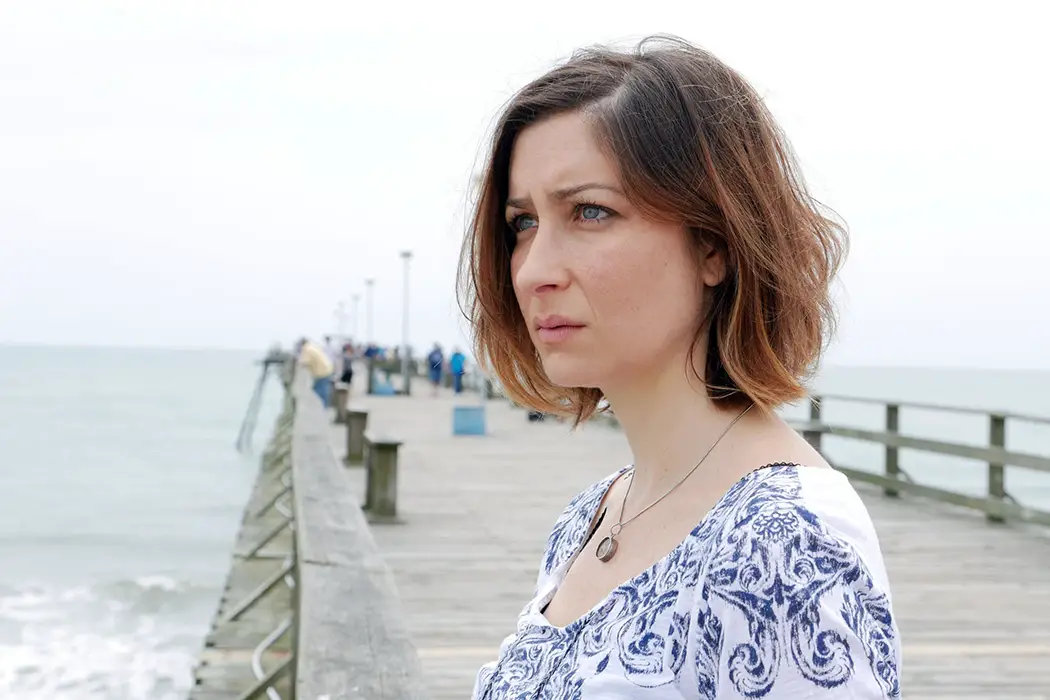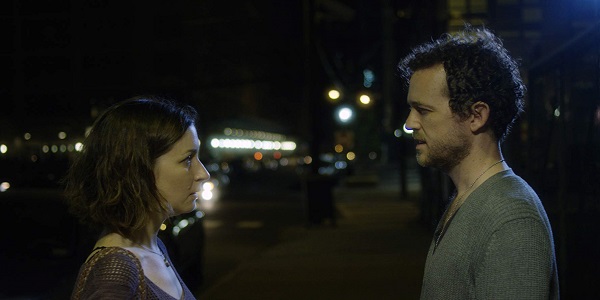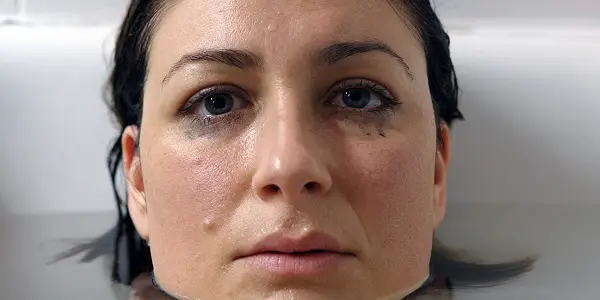LAURA GETS A CAT: Conversation & Pathos Drive This Life-After-Thirty Rom-Com

Charlie Nicholson has written about films and other media since…
Michael Ferrell has exhibited a fondness for the romantic comedy genre since 2013. His feature debut, Twenty Million People was a knowing, yet compliant nod at the genre’s timeworn conventions that nevertheless provided an endearing tale of modern love; an interest the writer-director looks to confidently continue with his most recent feature.
In Laura Gets a Cat, Ferrell navigates the unexpected catastrophe of turning thirty; an age of apparent war between increasing social pressures and interior longing for carefree youth. The result is an earnest, unavoidably modern blend of existential wondering and wry escapism, which also hits all the comforting beats its genre demands.
This is Thirty
We follow Laura Snow (Dana Brooke), a thirty-two-year-old writer living in New York City. Ever-smiling in that “No seriously, I’m fine” sort of way, Laura has just finished drafting her first novel; an achievement of which she is proud, though slightly guarded about sharing with others.

Following a dreamlike image capturing the protagonist bobbing restlessly in the middle of a garrulous grey ocean, we discover the reason for Laura’s low-key anxiety. Rather than the bestselling author she thought she’d be at thirty, she’s unemployed with a reliable, but unexciting boyfriend who appears much more comfortable with their stagnant relationship than she does.
To make matters worse, Laura’s post-thirtiness has triggered something of a ticking clock amongst her friends (“you gotta have kids now” presses her slightly manic friend at a suburban gathering), and seemingly everyone around her gives the impression they’d expected her to be married with children by now. Unwilling to sacrifice her independence (both as a writer and as a human being), Laura routinely retreats into an imaginary alternate life as a worldwide bestseller, treasured podcast guest and gracious self-help guru.
That is (cue rom-com bells chiming), until she meets Ian: a down-to-Earth performance artist who brews artisan coffee and recites poetry at joyously bad variety shows. Of course, they click instantly, leading to a Sophie’s choice between her spontaneous adventures with Ian, and her uninspiring, yet sturdy relationship with Tom. Apparently unable to choose, she attempts to juggle them both, all the while venturing deeper into her fantasies of writerly success.
The ocean soon becomes a metaphor for Laura’s battle with internal expectations and embracing maturity as a fully-fledged adult. Her romantic double-life puts a strain on Laura’s creativity, with which she battles through the ambiguous imaginary scenarios that once proved an egoic haven. Her imagined podcast interviews become assaults on her ‘unoriginality’ (though these angry outbursts are amongst the rare instances that feel needless); her guru status becomes compromised as she realises that everyone is probably far more successful anyway. Meanwhile, Ferrell pitches Laura’s internal uproot against the twee coffee houses and sunnily-coated hipsters of post-millennial New York, giving the convenient appearance that everyone else is getting along fine.

Though character experience remains central to Ferrell’s work, in Laura he takes the occasional opportunity to experiment with style. We move between removed observatory shots and intimate, intentionally stilted exchanges, creating an unpredictable half-reality that mirrors the protagonist’s growing awareness of her waning youth. An early example displaces Linklatery ponderings for hyper-focus a la Aaron Sorkin, in which Laura and Ian blast through first-date chitchat like a pair of computer terminals, while depersonalising close ups reduce them to mouths and eyes; lips and teeth. Saying only things.
Dana Brooke is Never Just Amusing
Played by the winning Dana Brooke (who seems a fusion between a more grounded Cristin Milioti and the fantastically dry Issy Suttie), Laura is as relatable as she is distanced in her attempts to repress her interior strife. Though undeniably funny, her self-effacing comments are also defensive shrugs against real internal anxieties, and even her spats with bartenders and bouncers about how she’s an incredibly serious writer (her childlike insistence that “It’s a good draft!” can feel hilariously similar to Ellie Kemper’s Kimmy Schmidt) come forth as unconvincing veils for her own apprehension in a world that insists she just get hitched.

Ferrell himself is convincingly torn as the complex Ian; as his weighted past begins to overlap uncomfortably with his flighty relationship with Laura, his emotional investment raises questions concerning his responsibility and maturity, while remaining troublingly sympathetic as an adult in search of a definitive way of acting.
Laura’s frequent breaks with reality seem the protagonist’s own way of searching for guidance where none exists, but in a slightly convoluted third act we end up unable to tell between Laura’s reality and her manifestations. That’s partially due to Ferrell’s slightly over-enthusiastic attempts to garner more sympathy for his protagonist, but more notably because the people around her feel distanced enough to never really give the viewer a sense of the ‘real’ them. With echoes of the Gerwig/Baumbach collab Frances Ha, the entire film shows a world that is at once resigned from and desperate to connect to itself, and visible within its cracks are the authentic, understated moments of togetherness between Tom, Laura and Ian.
Conclusion: Laura Gets a Cat
Laura Gets a Cat hones in on the unexpected catastrophe of turning thirty; suddenly having the romantic plans that carried you through your twenties turn sour against societal expectations and financial responsibility. As was Frances Ha and even the earlier Tully (though Charlize Theron’s stark portrayal of motherhood should only be compared in passing), Laura Gets a Cat sympathises with uncertainty during a time in which one is expected to have everything tied down, and how trying to satisfy those expectations can invariably leave some of us feeling tied up.
The potential triteness of Ferrell’s empathy here is eschewed by a matter-of-fact script and the sardonic delivery of its players, which however based in Linklater’s everyday musings ensures the comedy isn’t buried, arriving at the uplifting realisation that putting one foot in front of the other is really anyone’s best option.
“That’s, like, the only thing to do.”
What did you think? Did you relate to Laura’s experience? Let us know your thoughts down in the comments!
Laura Gets a Cat released on June 13 in the U.S. and the U.K. All international release dates can be found here.
Does content like this matter to you?
Become a Member and support film journalism. Unlock access to all of Film Inquiry`s great articles. Join a community of like-minded readers who are passionate about cinema - get access to our private members Network, give back to independent filmmakers, and more.
Charlie Nicholson has written about films and other media since 2015, and is approaching his third year studying Film and English Literature at the University of East Anglia. His work can be found on New Game Network, The Independent and Concrete. When he's not expanding his coming-of-age library or buried in a video game, you'll probably find him working on some diorama inspired by eighties-era fantasy. He's also never quite managed to shake his childhood fear of the Gmork. Follow him @Charcolson












